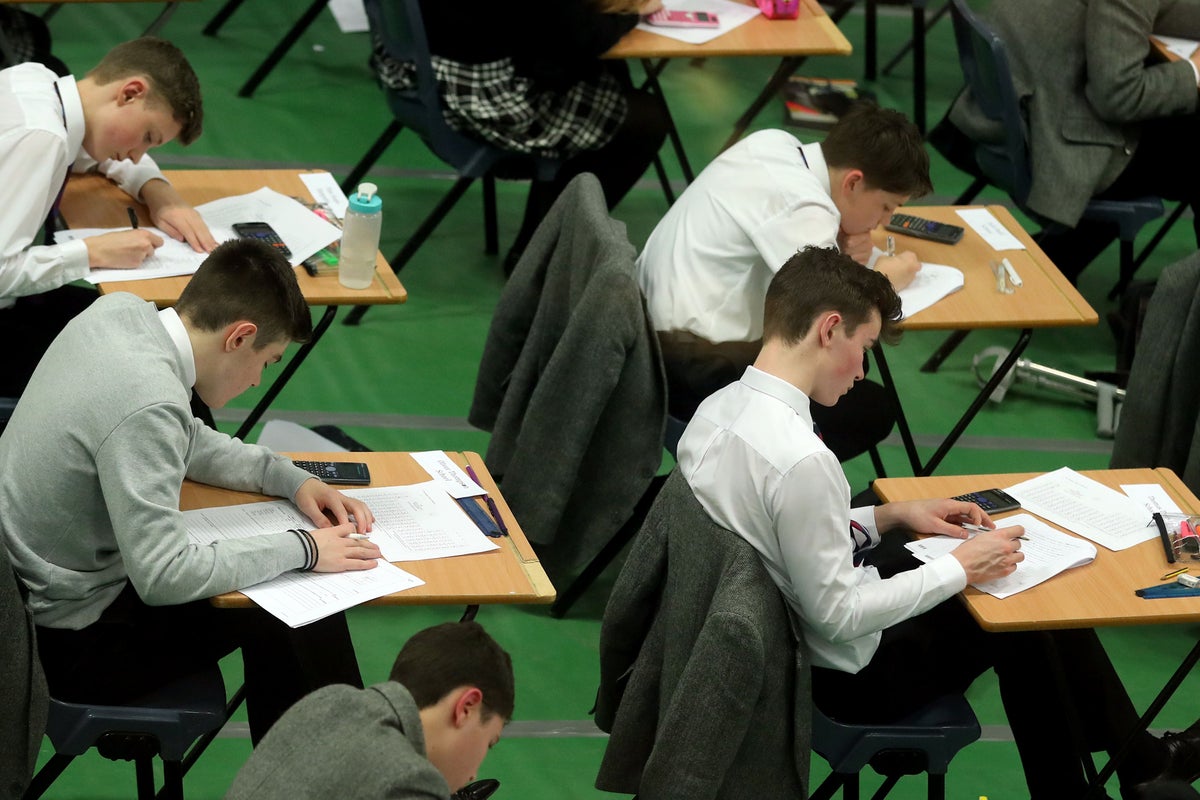
Pupils who are receiving their GCSE results could face more competition for sixth form places this year, it has been suggested.
A rising number of 16-year-olds and a growing interest in sixth forms could mean teenagers are turned away from oversubscribed settings, the head of the Sixth Form Colleges Association (SFCA) said.
Meanwhile, an education expert has warned that competition for the most selective sixth forms will be “fiercer” as the VAT change on private school fees may lead to more families seeking state-sector places.
It comes as pupils in England, Wales and Northern Ireland will receive their GCSE and vocational and technical qualification (VTQ) results on Thursday to help them progress to sixth form, college or training.
Bill Watkin, chief executive of the SFCA, told the PA news agency: “I think as the population continues to grow – and the opportunities to increase capacity, to build new classroom blocks, is held back – it is going to go on getting more competitive.”
He said that the success of sixth form colleges with their A-level results last week could drive up the demand for sixth form places even further.
Overall, the proportion of A-level entries awarded top grades rose again this year – remaining above pre-pandemic highs.
More than a quarter (28.3%) of UK A-level entries were awarded A or A* grades, up from 27.8% in 2024 and 25.4% in 2019 – the last year that summer exams were taken before the pandemic.
Mr Watkin told PA: “Colleges are already very well attended and we expect that to go up.”
He said: “It’s not just that they’re feeling the effect of the population bulge, but also they are enjoying considerable success which makes them doubly popular.”
Speaking ahead of GCSE results day, Mr Watkin said: “Some have got some spare capacity and can increase the number.
“Some have managed to build a new classroom block and increase capacity that way, and some are almost certainly going to have to turn some young people away because they are oversubscribed.”
Lee Elliot Major, professor of social mobility at the University of Exeter, said competition for top sixth forms may be higher this year as more private school parents look to move into the state sector.
The Government’s policy to impose 20% VAT on private school fees was introduced on January 1.
Prof Major told PA: “Competition for the most selective sixth forms will be fiercer than ever, with fears over VAT on private schools likely driving more families to seek out places in the state sector.”
He added that sixth-form admissions was the “Wild West” of the education system as entrance requirements varied significantly from one place to another.
Prof Major said: “We need a fair admissions code at 16, just as we have at 11, to stop sixth-form entry becoming a postcode lottery and ensure every teenager is fairly treated and has an equal chance to progress, wherever they are from.”
When asked whether teenagers could face more competition for college places this year, Catherine Sezen, director of education policy at the Association of Colleges (AoC), told PA: “I think it will be tight.
“I think it will be much tighter.”
She said that it would be easier for a college to offer flexibility in a classroom-based subject rather than in a vocational technical subject.
Paul Whiteman, general secretary of school leaders’ union NAHT, said: “There is extra pressure on secondary and sixth form admissions at the moment, due to a pupil population bulge at that age.
“Some sixth form colleges may be oversubscribed, especially in certain areas of the country – for example in areas with large amounts of new house building – which could mean competition for places for some students could be high.
“However, there are a very wide range of post-16 options for young people including school sixth forms, sixth form colleges and FE (further education) colleges.”
Pepe Di’Iasio, general secretary of the Association of School and College Leaders (ASCL), said: “Any students and parents planning transition into post-16 education will want to consider a range of factors when selecting where they want to continue their studies.
“For those in independent sector schools, it isn’t clear to what extent the implementation of VAT on school fees will play in that decision or how any increase in demand in the state sector would be accommodated.
“Funding is very tight in post-16 education and providers have to walk a financial tightrope ensuring that group sizes work educationally while also being financially viable.
“It seems sensible that the Government should monitor demand and how this is being met.”
